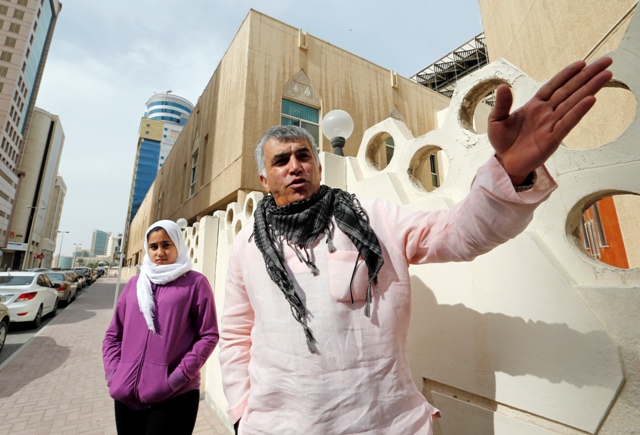Bahraini authorities should immediately lift an ongoing travel ban against Nabeel Rajab, president and co-founder of the Bahrain Centre for Human Rights, and drop all charges against him, the International Press Institute (IPI) said today.
Rajab, who also serves as the deputy secretary general of the International Federation for Human Rights (IFHR) and a member of the Advisory Committee of Human Rights Watch’s Middle East Division, is currently subject to the ban and faces up to 10 years in prison for “insulting a statutory body” and “disseminating false rumours in time of war”.
“Nabeel Rajab is being targeted solely because of his human rights activities,” IPI Director of Advocacy and Communications Steven M. Ellis said. “Despite his release from prison by royal pardon, the travel ban and looming charges against him prevent Mr. Rajab from freely pursuing his work as a human rights activist. We urge the Bahraini authorities to end the campaign of harassment against Mr. Rajab, to drop all charges against him and to lift the travel ban.”
Rajab was arrested at his home on April 2, 2015 – after his house was reportedly surrounded by some 20 police cars – for tweeting on alleged instances of torture at Bahrain’s Jaw prison. He was released on July 13 for health reasons after a royal pardon was issued by the King of Bahrain, but a new travel ban was imposed against him and he still could face up to 10 years in prison.
One of the most prominent defenders of human rights in Bahrain, Rajab is credited with the foundation of the country’s first human rights organisation, the Bahrain Human Rights Society. During the Bahraini uprising of 2011, in which he led numerous pro-democracy protests, he clashed with the government and security forces. He has been arrested and incarcerated several times, subjected to administrative harassment and targeted by death threats.
In August 2012, Rajab was sentenced to three years in prison for three cases related to his participation in peaceful gatherings. In December 2012, an appeals court reduced the sentence to two years’ imprisonment and he was released in May 2014. Five months later, Rajab was again arrested and detained for allegedly “insulting a public institution” in a tweet he wrote while in Europe. He was released after one month, but barred from leaving the country. On Jan. 2, 2015, Rajab was sentenced to six months’ imprisonment on the charges of “insulting public institutions and the army,” but he was released early after a pardon was issued by Bahrain’s king.
Rajab’s lawyers submitted a second petition to the attorney general on Dec. 3, 2015, requesting that the travel ban imposed on him on July 13 be lifted. In the written request, Rajab’s lawyers raised the issue of urgency, as Rajab’s wife’s health is rapidly deteriorating and she needs treatment outside Bahrain. The lawyers have received no response to their petitions to date.
Rajab was set to be a speaker at IPI’s World Congress in Doha, Qatar this March. However, he will not be able to attend the event as long as the current travel ban against him remains in place, and he will have to take part in the panel discussions via live streaming.
Rajab is the recipient of numerous international awards, including the Ion Ratiu Democracy Award, given by the Wilson Center in Washington, D.C. In 2013, the Bahrain Centre for Human Rights received the Thorolf Rafto Memorial Prize, awarded annually by the Norwegian Rafto Foundation for Human Rights for promoting democracy and human rights.
